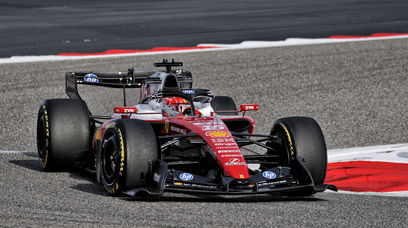After several years of using the same qualifying format, the 2021 F1 season is experimenting with a new event. Sprint qualifying will take place at three Grand Prix weekends during the year, where the 100km sprint race will be held on a Saturday afternoon. The result of the sprint will determine the starting grid for Sunday's main race. In the build-up to the plans being finalised, there was much talk amongst F1 personnel and fans alike about the idea, and it is fair to say that not everybody has necessarily been in favour. Perhaps this is because there are ultimately some clear flaws in the concept, not to mention the ramifications these could bring for teams, drivers and fans.
The results
One of the reasons behind the introduction of sprint qualifying has been to increase on-track action and to allow drivers the opportunity to battle to improve their starting position on a Sunday. Yet it is difficult to see how the end result could vary that greatly from a traditional qualifying. Perhaps some drivers can overtake and gain a few places. But even if they manage to maintain that position until the end of the sprint race, will they actually benefit from a higher starting position on Sunday, or will a car of lesser performance simply slip back again? It seems unlikely that the outcome of a sprint race could differ that much from the usual results; for example, how could a shorter race allow a car such as a Haas to suddenly be able to fight through the field, and would the work this takes actually be worth it just to gain a few spots on the grid? This would suggest that the Sunday grid is perhaps not going to vary that much from that of a traditional race weekend.
The racing
Bearing this in mind, many drivers may be wary of pushing too much in the sprint race. It seems too risky to get involved in aggressive battles or to attempt to pull off bold overtaking moves given the consequences this could have for the rest of the weekend. Sunday is ultimately what matters, and no team will want to have their chances in the main event scuppered by damage caused in the sprint race. Surely this will result in less racing in the shorter event, thus making it less of a spectacle for the fans.
The rules
There is still some confusion over how sprint qualifying will impact other rules during the race weekend. For example, it has been stipulated that cars will be able to use two sets of tyres freely in the sprint race, and then there will be a remaining two sets of tyres for the main Grand Prix. But it appears unclear whether this means that drivers have to start the race with the tyres they used in Q2 on Friday, or whether it would be those used in sprint qualifying. There are also some uncertainities about parc ferme rulings. This sort of confusion is not likely to go down well with the teams, who already have enough to think about without this extra issue.
The championship
It has been confirmed that points will be awarded to the top three finishers of the sprint race. In theory, this could mean that the championship could be wrapped up sooner than usual, or could even be decided by a sprint qualifying session. For many F1 fans, the idea that the title could be won in a short race on a Saturday afternoon - rather than the main spectacle on a Sunday - will surely not be very appealing.
The drivers' attitudes
F1's Managing Director Ross Brawn has claimed that the drivers are open-minded about sprint races. Yet in the weeks leading up to the plans being confirmed, some appeared to express concerns about the format taking away from the importance of the main Grand Prix. If the drivers are not happy - something that arguably could happen if sprint qualifying actually provides less opportunity to race more aggressively - then the concept is already at risk of failing. Fans like to see the stars of the sport fighting hard and enjoying what they are doing. If this does not happen, sprint races won't be much fun for those competing or those watching.
The fans' views
This leads to the significance of what the sport's fans feel about the new format. A quick glance at social media suggests that the outlook is already not good; comments from fans on a recent post about sprint qualifying include "Just don't do it. Listen to us the fans" and "No need for sprint races". Ross Brawn has argued that one aspect of introducing the change was to increase engagement across the whole weekend. But clearly, if the reaction so far is anything to go by, the most passionate fans of Formula 1 are already enjoying the current sessions as they are. Bosses will be wary of receiving the sort of negativity that the disastrous elimination qualifying received in 2016 . This perhaps explains why the sprint races will be tested at just three race weekends in 2021. Clearly many fans need convincing that this will work, and it will be fascinating to see if the reaction becomes more positive after the first sprint race is held.
Most read







